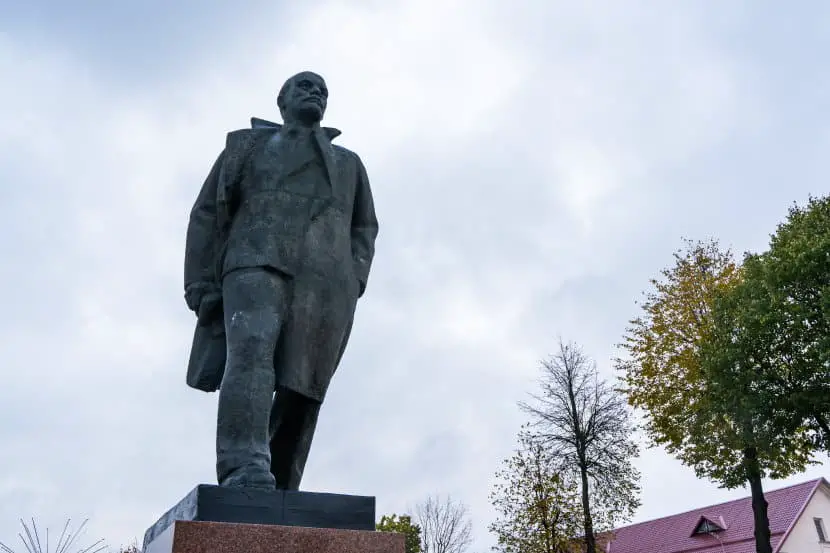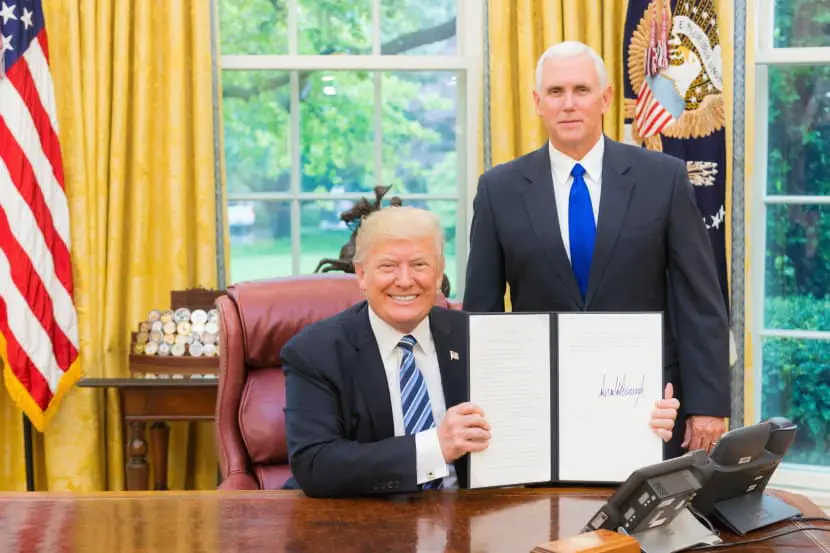Why Are Most Dictators Narcissists?
*We may earn a commission for purchases made using our links. Please see our disclosure to learn more.
If you’re familiar with narcissism, you’ve likely noticed the narcissistic tendencies of recent dictators, most notably Russia’s Vladimir Putin and China’s Xi Jinping, but is it true that most dictators are narcissists, and why is that so? The truth is that many dictators are, in fact, pathological narcissists, and you don’t have to be a psychologist to see the telltale signs. There are definitely a number of reasons why narcissists can rise to the level of becoming a dictator.
Most dictators, while appearing confident, are really suffering from an extreme sense of shame and self-loathing characteristic of narcissistic personality disorder. Such narcissists are drawn to the power of a dictator because it gives the illusion of control, something they desire above all else.
To really understand the inner world of a dictator, you have to look beyond their cruel behavior to what it is they are trying to achieve. Most want to create a lasting legacy or force people to love them or not abandon them. When viewed through the lens of a mental illness, you can see their desperate need for validation.
Why Dictators are Usually Narcissists

What causes narcissism is an intense shame and self-loathing that causes a child to bury their true self, which they come to believe is hopelessly flawed. In the place of their true ego, the narcissist creates a false self that they will use to interact with the world around them.
Unfortunately, the false self cannot do the work of the true self in that it cannot support the narcissist’s self-esteem. That’s why the narcissist needs to manipulate and control the people around them so that they will prop up their self-esteem.
When the narcissist creates the false self, the traumatized child creating it infuses it with exaggerated ideas of self-worth. These usually involve such grandiose concepts as omnipotence and omniscience. These are the opposite of what the narcissist truly believes themselves to be, but it represents an ideal they want to be true.
Throughout their life, the narcissist lives in fear of being exposed for the flawed person they really believe they are, and to avoid that, they will go to all kinds of lengths to get people to see them in the light of the false self they have constructed. You can see this in their arrogant insistence that they are all those grandiose ideals they infused into their false self.
In their quest to be recognized as superior to other people, narcissists often work hard to get promoted in their workplaces, and they often go into politics. Life as a politician affords them the intense levels of attention they crave since they need a constant supply of adoration.
Narcissists are also adept at manipulation and can be quite charming, so they often have many supporters as political leaders. This makes it easier for them to rise to fame and gain more power.
What Happens When a Narcissist Gets Power?

Once a narcissist rises to power, as sadly exemplified by such notable dictators as Adolf Hitler, Mao Zedong (or Tse-tung), Josef Stalin, and Pol Pot, their fear of exposure rises to an extreme level of paranoia. They become driven by an irrational fear of the fate that could befall them if they are exposed as their worthless true self.
While in power, they strive to maintain the illusion they have created in their false self. They create an environment that feeds their ideas of superiority and self-importance. As an example, Saddam Hussein proclaimed himself as the savior of the Iraqi people, Muammar Gaddafi crowned himself the “King of Kings,” and Kim Jung Un and his forebears view themselves as god-like.
The combination of delusions of grandeur with extreme paranoia creates a toxic environment in which they become increasingly authoritarian to force people to both give them their narcissistic supply and to prevent anyone from causing them harm.
For example, when Kim Jung-Il, the North Korean dictator, died, many people were put into forced labor camps because they were not upset enough about his death. The paranoia and extreme cruelty of such leaders are exemplified by the deaths for which they are responsible.
Most notably, Adolf Hitler is responsible for the deaths of over 6 million Jews, people of color, and disabled people. Since these narcissistic dictators see themselves as superior, they believe they can do whatever they want to anyone who opposes them or who they come to believe represents a threat to their false image and the power they hold.
They are extremely vindictive in their actions, and this is shown by their extreme cruelty. Perhaps the saddest thing is that underneath it all is a damaged identity.
Authoritarian Leaders and Malignant Narcissism

Many narcissistic dictators go to extreme lengths to show how powerful they are. The brutal Ugandan leader Idi Amin claimed he kept the head of his political enemies in his freezer. Francois Duvalier, the authoritarian leader of Haiti from 1957 to 1971, believed that one of his political opponents had himself transformed into a black dog. For that reason, he ordered all the black dogs on the island put to death.
The extreme behaviors of dictators make their mental illness clear to the outside observer, and while it’s difficult to have empathy for them, it’s easy to see their behaviors are governed more by fear than true power. While it’s easy to describe such people as psychopaths, that’s an imperfect descriptor.
Psychopaths often suffer from a dysfunctional brain in which the frontal lobe and amygdala are damaged or underdeveloped. The frontal lobe controls moral decision-making and impulse control, while the amygdala is responsible for regulating fear, rage, and desire. It’s definitely clear that many dictators lack moral decision-making and impulse control, but much of their behavior is also clearly a desire to be loved.
This is evident in their excessive concern for how they are perceived, which is more consistent with narcissism. They often go to extreme lengths to maintain a flow of narcissistic adoration. Moreover, they lack empathy for others, so they don’t understand the consequences of their actions. The cruel actions of a dictator, however, go far beyond the need for admiration and a lack of empathy.
That’s where malignant narcissism comes in. While not a formally recognized mental disorder, many psychologists believe malignant narcissism is midway between narcissism and psychopathy. This condition combines the normal symptoms of narcissism with the sadistic, antisocial behavior of the psychopath. The combination of the two is a recipe for disaster.
Modern Dictators and Narcissism
The world is once again witness to the murderous actions of a dictator as exemplified by Vladimir Putin’s invasion of Ukraine in February of 2022. While most psychologists are reluctant to diagnose anyone as a narcissist whom they have not examined, Vladimir Putin fits the pattern of malignant narcissism.
He was born in 1952 to parents who had lost two children before him. They deemed him their ‘miracle child.’ Narcissism is caused by childhood trauma, and overly protective parenting styles are a form of trauma that can cause narcissistic personality disorder.
In Putin’s case, he was his parents’ golden child, and as such, he developed a strong sense of entitlement. For him, love means being constantly showered with affection. Additionally, the attachment he formed with his parents served to feed his greed and sense of grandiosity, needs that became a requirement for him to feel loved.
If someone fell short of that kind of loving devotion, he would feel not good enough. Moreover, he was bullied since he was a small child, and that provided the childhood trauma that turned his narcissism malignant. He has been quoted as saying, “50 years ago the Leningrad Street taught me a rule: if a fight is inevitable you have to throw the first punch.”
This shows he has developed a mentality of ‘react first’ so as to ‘win’ without regard for the consequences of his actions. With this kind of narcissism, when people don’t treat the individual as important, it activates a sense of worthlessness, that buried true self.
This then results in an escalation of narcissistic behavior as the individual tries to gain a sense of power to soothe their wounded ego. Putin has done exactly that, and he has been enabled by his government, which is afraid to stand up to their own bully.
The Case of Donald Trump

Much attention has been paid to narcissism, given the personality and actions of the former US president, Donald Trump. Again, psychologists don’t want to diagnose someone they have never examined, but Trump clearly exhibits several narcissistic characteristics.
He is incredibly sensitive to any kind of criticism, a narcissistic feature that is borne of that fear of exposure of the worthless true self. He clearly expresses grandiosity, as evidenced by his insistence that everything he does is perfect or the best or incredible, to use a few of his favorite expressions.
He also engaged in numerous attempts to grab more power than what has been traditionally been given to US presidents in the past. He often proclaimed that he had the power to do things no other president before him had ever done, such as pardon himself.
Additionally, he could not accept his loss to the current president, Joe Biden. He encouraged, possibly even criminally so, the insurrection on January 6, 2021. Some of his close aides have reported that he was reveling in the idea that the people attacking the US capitol were doing so on his behalf.
Such actions feed his incessant need to be adored. Had it not been for the actions of a few people who resisted his pressure to declare the election results invalid, he might have prevented the peaceful transfer of power for which the US is known. Given the events of January 6, it can be argued that the transfer of power was not actually peaceful.
Finally, he is said to be likely to run for president again in 2024, and while many people would prefer to avoid another defeat, for the narcissistic Trump, it would be sweet revenge to be returned to office as the beloved ‘savior’ of his people.
Do Narcissistic Leaders Have Any Strengths?

While there are certainly many drawbacks to narcissistic leaders, particularly malignant narcissists, they do have some strengths. One of their greatest strengths is that they often have compelling, even gripping, visions for their country.
Narcissists are, by their very nature, people who can see the ‘big picture.’ They have spent a lifetime playing chess with the people in their lives being their pawns. They can often see two or three steps ahead of their political opponents, and they know what motivates people. They are not always great at carrying out that vision, but they can see it.
They are also highly motivated to carry out their vision, and they don’t care what it costs. This is often a very attractive feature for followers of the narcissistic leader, particularly in times of great change, as we face in our modern world.
Narcissists see their vision as a chance to truly change the world, and because they want to leave behind a legacy – as we have seen with Putin’s war with Ukraine – they are willing to do almost anything to get their way. The combination of their charm and their vision means that narcissists will often be able to attract scores of followers, as was seen with Donald Trump.
They can be inspirational as they feed off the energy of an adoring crowd. That was clear in Trump’s numerous well-attended rallies. It’s also a strategy we have seen Vladimir Putin using now to convince Russians that his war in Ukraine is just.
In the right hands, however, these traits can produce positive results. There is, perhaps, no better example of that than the presidency of Bill Clinton. Though his risk-taking led to his own personal catastrophe, he is widely viewed as one of the most successful US presidents.
Final Thoughts
The combination of malignant narcissism and power frequently leads to catastrophic results as witnessed by many past dictatorships and the situation in Ukraine that erupted early in 2022. Many politicians are narcissistic, and they can produce good results for their constituents, but it is when they tend toward psychopathy that they begin to engage in savage and brutal acts of inhumanity. Unfortunately, Putin’s war is not the first time a narcissist has gone to savage extremes nor will it be the last.
It’s important to understand how narcissism affects the decisions of the world’s leaders. This article about 13 famous narcissists has more valuable insight into how narcissistic leaders can change the world.
--
If you want more tips for dealing with narcissists, setting boundaries, and managing emotional triggers, make sure you subscribe to my youtube channel




